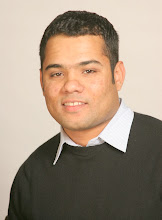Hybrid C2 Structures: Between Hierarchies and Edge Organizations
I am going to start working on a new research project with Sumit Roy (LINK). Our project was recently funded through a grant from the Center for Edge Power, [sponsored by the Office of the Assistant Secretary of Defense for Networks and Information Integration (OASD-NII)], Naval Postgraduate School. Broad Agency Announcement NPS BAA-07-001.
Here is a brief description of the project:
In order to design the ideal command-and-control (C2) structure we consider two ingredients – information and the network. Information is the glue that holds the organizational structure together. Information is generated throughout the organization and must be dissipated by the network via routing across network entities (nodes/peers) to destinations where it is needed. Networks determine the paths that information traverse, and the consequent processing and decision-making by intermediate nodes. In this proposal, we take an inter-disciplinary perspective to the study of hybrid C2 by examining information networks through multiple lenses by drawing on our collective expertise in the fields of information science, organization science, telecommunications network theory, mathematical statistics, and network simulation.
Drawing on these multiple disciplines, our first objective will be to define performance metrics for organizational socio-technical networks. Such measures are plentiful in the telecommunications network theory - such as throughput, scalability, robustness, transfer rates, etc. These are an ideal starting point but need to be customized in the context of socio-technical systems. The most important of such system variables relate to the fact that network nodes can be either human agents or electronic entities (e.g. sensors). For example, socio-technical networks for sense-and-respond operations can be comprised of 80% technical entities (e.g. traditional sensors to monitor changing conditions in the environments and information aggregators that summarize information collected), and 20% human nodes that make sense of this information and relay actions back to the agents and objects in the environments. Consequently, we must account for the (wider) human-centered variations in cognitive and processing capabilities, error tolerances, social theories of interaction etc. Clearly, new models are required to incorporate a) node affinities, b) robustness to interference, c) conflict resolution and error tolerance to characterize the dynamics of our proposed hybrid C2 networks. Accordingly, we propose to draw on decision theory and probabilistic modeling and simulation to develop enabling node and node-clique level properties (micro-level) and study their impact on aggregate network metrics (macro-level). The second objective will be to design and test multiple network structures on the performance measures. Here we will begin by describing broad features of two extreme networks – the pure hierarchy and the pure peer-to-peer (edge) organization.
The proposed research takes a fresh look at the dichotomy between random and scale-free information networks from an inter-disciplinary perspective:
- We will construct performance measures for socio-technical information, and knowledge, networks by building on telecommunication networking theory.
- We will construct tiered networks of modest scale and then proceed to study their properties. The fundamental issues of interest will be what parameters of the tiered network drive the trade-off between connectivity and robustness. The emphasis of this work will be constructive, i.e. relative the network topology (i.e. # tiers, nodes/tier and their connectivity distributions) to structural properties that are predictive of important features such as robustness-connectivity tradeoffs.
I am looking for graduate students at the University of Washington who are interested in working on issues of information networks, multi-criteria decision-making problems, information economics, information theory, information dynamics, and agent-based modeling. If interested, please send me an email.
